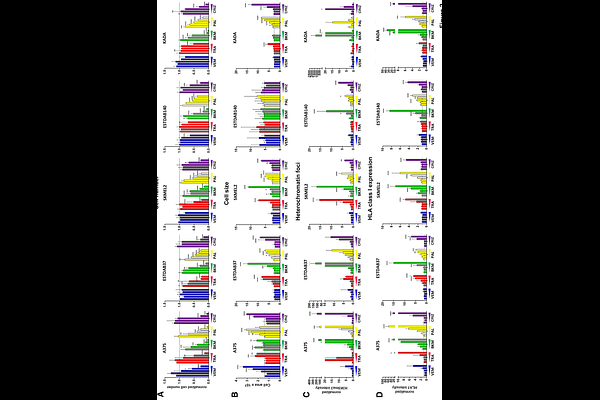Palbociclib CDK4/6- and Crizotinib MET/ALK/ROS1-inhibitors Synergize to Enhance Senescence and Immune Recognition in Melanoma Cells Independently of BRAF/NRAS Status

Palbociclib CDK4/6- and Crizotinib MET/ALK/ROS1-inhibitors Synergize to Enhance Senescence and Immune Recognition in Melanoma Cells Independently of BRAF/NRAS Status
Zhang, F.; Boutin, L.; Das, I.; Melief, J.; Singh, M.; Stantic, M.; Alzrigat, M.; Azimi, A.; Baldran, L.; Bazzar, W.; Da Silva Liberio, M.; Goodwin, J.; Tuominen, R.; Höiom, V.; Jerhammar, F.; Egyhazi Brage, S.; Hansson, J.; Kiessling, R.; Selivanova, G.; Wiman, K. G.; Wilhelm, M. T.; Larsson, L.-G.
AbstractPro-senescence therapy, which triggers both permanent cell cycle arrest and an immune response, is a controversial new strategy for cancer treatment. To assess this strategy in melanoma, we performed a high throughput microscopy-based senescence screen utilizing a panel of melanoma cell lines with different driver mutations and a collection of clinical and experimental drugs. We found that vemurafenib and trametinib, which inhibit BRAFV600E and MEK1/2, respectively, induced senescence in some but not all BRAF-mutant cell lines. In contrast, palbociclib, BKM-120 and crizotinib, which inhibit CDK4/6, PI3K, and MET/ALK/ROS1, respectively, triggered senescence in most cell lines, irrespective of BRAF/NRAS mutation status, and overcame intrinsic and acquired vemurafenib resistance. The combination of palbociclib and crizotinib synergized to further enhance the senescence response in all cell lines irrespective of BRAF/NRAS mutation status, increased the expression of SASP factors, such as IL-1a and b, and HLA class I and other markers for recognition by NK and T cells. Further, this combination caused a significant increase in CD8+ T cells and pro-inflammatory macrophages in the tumor microenvironment and a marked reduction of mouse melanoma tumor growth that was dependent on CD8+ T cells, suggesting increased immune surveillance. Our findings suggest that pro-senescence therapy based on concomitant inhibition of both CDK4/6 and MET/ALK/ROS1 could be developed further as an alternative treatment strategy for melanoma. Significance: Pro-senescence therapy based on combined targeting of CDK4/6 with Palbociclib and MET/ALK/ROS1 with Crizotinib inhibits melanoma tumor growth through anti-tumor immune response activation, providing an alternative treatment strategy for malignant melanoma.